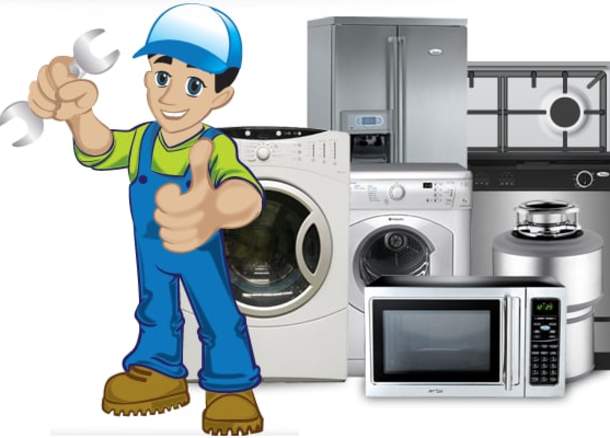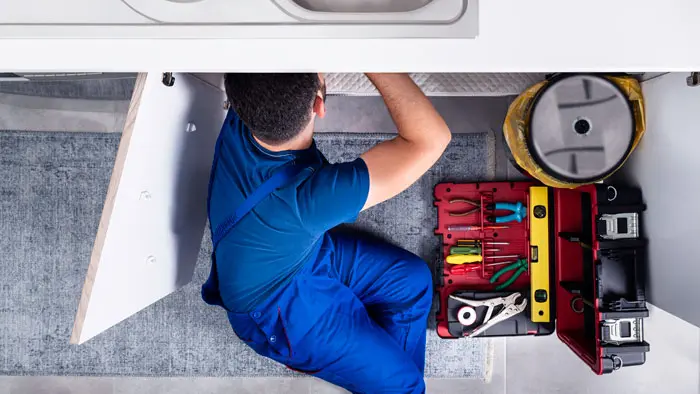How to Handle a Washer That Stops Draining – Dependable Refrigeration & Appliance Repair Service Washing Machine Repair
How to Handle a Washer That Stops Draining – Dependable Refrigeration & Appliance Repair Service Washing Machine Repair
Blog Article
A Comprehensive Check Out DIY Appliance Fixing for Homeowners
If you've ever before faced a defective appliance, you recognize exactly how frustrating it can be. Comprehending common problems and utilizing the ideal troubleshooting strategies can save you time and money. With the right devices and a little knowledge, you could deal with small repair work on your own. When do you recognize it's time to call in an expert? Let's discover the essentials of DIY home appliance fixing and what you need to keep your home running efficiently.
Comprehending Usual Home Appliance Problems
When your devices begin acting up, it can feel overwhelming, especially if you're not exactly sure what the issue is. Common issues often develop with fridges, washers, and clothes dryers, and understanding what to search for can save you time and anxiety. If your refrigerator isn't cooling down, examine the temperature settings or pay attention for unusual noises that might suggest a falling short compressor.With cleaning devices, leakages normally stem from worn pipes or malfunctioning door seals. If your clothes dryer isn't home heating, a clogged vent could be the perpetrator.
Necessary Tools for DIY Repair Works
Having the right devices can make all the difference in your DIY appliance repair work initiatives. Beginning with a dependable toolset that includes screwdrivers-- both flathead and Phillips-- since lots of devices use these kinds of screws. A sturdy set of pliers is essential for clutching, twisting, or cutting cables. You'll also desire a socket established for eliminating screws and nuts that hold home appliances together.A multimeter is important for examining electrical connections and detecting issues. Do not forget a level to ensure your home appliances sit effectively, as this can impact efficiency. Consider buying a torque wrench for certain tightening needs. An excellent flashlight or work light will aid you see right into limited or dark areas. With these tools in hand, you'll be well-equipped to deal with most DIY home appliance repairs with self-confidence.
Troubleshooting Strategies for Appliances
Prior to diving right into repair work, it is important to determine the trouble impacting your appliance. Start by observing any kind of uncommon sounds, leakages, or error codes. Make note of when the concern occurs-- does it occur during details cycles or under particular conditions? This can use clues.Next, get in touch with the individual guidebook for fixing tips. Lots of appliances include a troubleshooting area that might address your concern directly. On-line sources, online forums, and video clips can also supply important insights.If you can, execute easy tests: for a washing maker, check if the door lock is involving effectively; for a refrigerator, see if it's maintaining the appropriate temperature.Lastly, don't forget to check power sources-- guarantee your home appliance is connected in and that breaker are functioning. By systematically tightening down the trouble, you'll be much better furnished to tackle the repair work efficiently.
Step-by-Step Fixing Guides for Major Appliances
While you may really feel daunted by the concept of repairing significant appliances, adhering to a clear step-by-step guide can make the procedure manageable. Begin by recognizing the issue-- this can be anything from a refrigerator not cooling to a cleaning machine not spinning. Once you've pinpointed the problem, gather the essential tools like screwdrivers, pliers, and a multimeter.Next, consult your device's manual for certain instructions and representations. This source can be important for understanding just how to disassemble and rebuild your device safely. Start the repair by unplugging the system and removing any type of panels or covers. Carefully examine parts, replacing any malfunctioning components as needed.After you have actually finished the repair work, reassemble the device and examination it to confirm whatever works appropriately. Keep a record of your repairs for future referral. With technique, you'll acquire confidence in tackling a lot more complicated concerns.
Safety Tips for Home Appliance Repair Service
Before you start any device fixing, ensure you're equipped with the right personal safety tools like gloves and security goggles. Constantly unplug the home appliance or turn off the power source to avoid any crashes. Remaining secure is just as essential as completing the repair work itself.
Personal Safety Tools
When taking on home appliance repair work, it is essential to prioritize your safety and security by putting on the ideal personal protective equipment (PPE) Begin with safety goggles to shield your eyes from debris and prospective splashes. Next off, use handwear covers to secure your hands from sharp edges and hazardous products. Depending upon the appliance, you could likewise need a dirt mask to stay clear of breathing in dust or fumes. Tough footwear samsung refrigerator ice maker replacement is necessary, as well; select closed-toe shoes to avoid injuries from heavy items. Lastly, consider making use of knee pads if you'll be dealing with the floor for extensive periods. By furnishing on your own with proper PPE, you'll decrease threats and focus on the task at hand, making certain a much safer and more efficient repair procedure.

Power Resource Precautions
Making sure that an appliance is detached from its power source is important for your safety and security during repairs (Washer dryer repair service Dependable Refrigeration). Before you begin, unplug the appliance or switch off the breaker. This easy action prevents electric shocks or mishaps. Always double-check that the power is off making use of a voltage tester-- do not count on assumptions! If you're collaborating with bigger appliances, think about making use of a lockout/tagout system to avoid accidental resurgence. Maintain your workspace completely dry and clear of clutter to decrease risks. Use insulated gloves and use devices with rubber holds to give extra protection. Finally, never effort fixings in damp conditions, as water and electrical energy do not mix. By following these precautions, you'll create a much safer environment for your DIY fixing task
When to Call a Specialist

Safety Concerns First
Although tackling DIY device repair services can be fulfilling, it's critical to identify your limits and prioritize safety and security. If you encounter any kind of indications of electrical concerns, like stimulates or unusual smells, quit promptly and call a professional. Do not try fixings including gas lines or complicated electrical wiring unless you're completely trained. Always unplug appliances before servicing them, and make use of safety equipment to secure yourself from potential threats. If you're not sure regarding a repair work or feel overwhelmed, looking for professional help is the very best option. Your safety is a lot more vital than conserving a few bucks. Bear in mind, some repair services can lead to major injury or additional damage to your home appliance otherwise dealt with appropriately. Count on your reactions-- when in uncertainty, get to out for specialist support.
Facility Repair Issues
When home appliances breakdown past basic concerns, it's commonly best to hire a specialist. If your refrigerator isn't cooling, your cleaning equipment won't rotate, or your oven won't warm, these problems can indicate extra complicated problems. Trying to repair these by yourself can cause more damage or safety and security risks. You may experience electric issues, weird noises, or leaking liquids that call for specialized knowledge and tools. If you're uncertain regarding the repair work process or do not have the essential competence, do not hesitate to connect for professional help. It can conserve you time, cash, and the irritation of experimental fixes. Trusting a qualified specialist assurances your devices are recovered securely and effectively, enabling you to obtain back to your daily routine.
Warranty Considerations
Before attempting any kind of repair services, it is essential to check if your home appliance is still under warranty. If it is, you might want to stay clear of DIY fixings completely. Making modifications or opening the appliance could void the service warranty, leaving you liable for future fixings. Instead, connect to the producer or licensed service center for specialist help. They often have actually trained professionals that can identify and settle issues quickly. If your home appliance runs out warranty and you feel confident in your skills, you can wage DIY repairs. If you're uncertain or face complicated problems, calling a professional is usually the more secure choice. Keep in mind, buying specialist help can conserve you time and prevent more damages.
Maintaining Your Appliances for Longevity
To assure your appliances offer you well for several years ahead, regular upkeep is key. Begin by cleaning your devices regularly; dust and particles can build up and impede efficiency. For refrigerators, inspect the door seals and clean the coils to keep them effective. Clean your washing maker's drum and dispensers to stop mold and odors.Don' t neglect to examine pipes and links for leakages or wear. For dishwashing machines, run a cleansing cycle monthly to confirm correct water drainage and remove odors.Keep an eye on any type of uncommon sounds or performance issues-- resolving these early can prevent costly repair work down the line (Dryer repair Oro Valley Dependable Refrigeration & Appliance Repair Service). Lastly, refer to your home appliance handbooks for details upkeep ideas and recommended solution periods. By adopting these methods, you'll not only prolong the life of your home appliances but also enhance their efficiency, conserving you time and money in the lengthy run
Often Asked Inquiries
What Home appliances Are The Majority Of Frequently Repaired by Property Owners?
When it comes to DIY repairs, home owners frequently take on cleaning makers, dryers, refrigerators, and dishwashing machines. You'll locate these home appliances are most generally repaired because they regularly run into concerns and can be workable with standard tools.
Exactly How Can I Discover Device Fixing Parts Quickly?
You can discover device fixing components easily by browsing online merchants, seeing local equipment shops, or examining maker web sites. Don't neglect to have your appliance version number useful to ensure you obtain the appropriate parts.
Exist Online Resources for Do It Yourself Appliance Repair Videos?
Yes, there are plenty of on-line sources for DIY appliance repair work videos. YouTube is a wonderful start, together with internet sites like RepairClinic and AppliancePartsPros, which offer detailed overviews to aid you fix and repair your devices.
What Common Mistakes Should I Stay Clear Of Throughout Repairs?
During repair work, stay clear of hurrying your job, avoiding security precautions, or neglecting to review manuals. Do not presume you know everything; request help if required. Always keep your work space organized to avoid losing devices or components.
Just How Can I Tell if a Component Deserves Repairing?
To establish if a part's worth fixing, analyze its cost compared to replacement. Inspect schedule, ease of repair work, and whether the device's total value warrants the effort. If repair work set you back extra, consider changing it rather.
Report this page